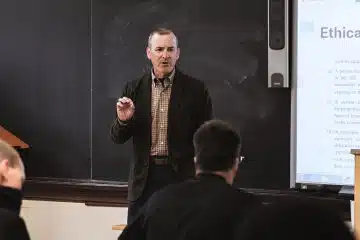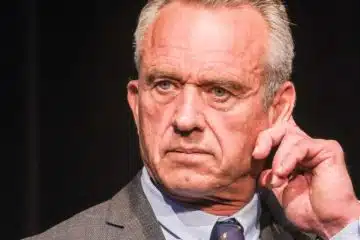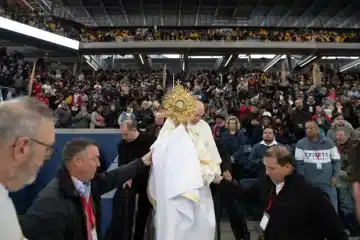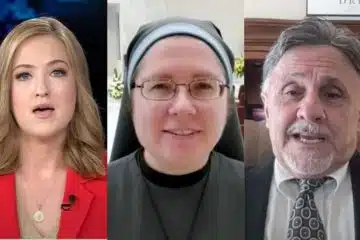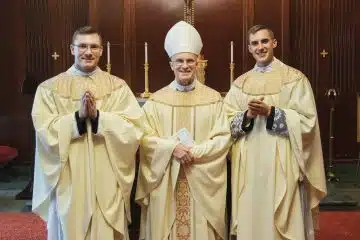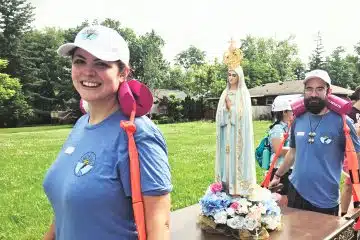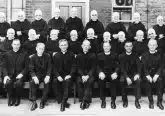Archdiocese Due Process document updated
September 2013
By John Stegeman
The Catholic Telegraph
In the interest of love of God and love of neighbor, the Archdiocese of Cincinnati maintains an Office of Due Process to assist in the mediation of disputes. The document outlining the process, originally written in 1990 and last updated in 1998, has been given a facelift.
Earl Leonhardt, administrator for the Office of Due Process, sent a letter to pastors July 22 explaining that document was rewritten by himself, Archdiocese of Cincinnati Human Resources Director Bill Hancock and Linda Chouteau, executive administrative assistant to Archbishop Dennis M. Schnurr.
The purpose of the rewrite was to make the document more user-friendly by replacing some difficult to understand language.
“It was written by lawyers, and it was pretty ‘lawyery,'” Leonhardt said. “We made it more simplified so both sides can understand what the document is. We also cut down on some of the paperwork that people would have been required to fill out.”
The Office of Due Process urges all complaints be handled at the local level, and exists for cases where all local attempts to solve a dispute have been exhausted. The office’s authority extends to all parishes, schools and institutions of the archdiocese, as well as the Central Office.
According to the document’s preamble, the protection of rights and resolution of disputes between church members through just procedures “are among the most important exercises of governmental authority by the bishop.”
It adds that disputes can be solved in one of three ways. The first is by conciliation and mediation. Where that has failed, members may select between Administrative Review (review of decision by a hierarchical superior) or Judicial Recourse. The archdiocesan Tribunal, and not the Office of Due Process, handles Judicial Recourse in accordance with Canon Law.
Leonhardt was appointed administrator by Archbishop Schnurr in 2011. He has been involved with the archdiocese since 1991 and was a commissioner with the Federal Mediation and Conciliation Service for more than 33 years.
“The main thing we’re trying to do is make sure people don’t get themselves all tied up with the legalese of it,” he said. “I figure if I can understand it, then they can understand it.”


